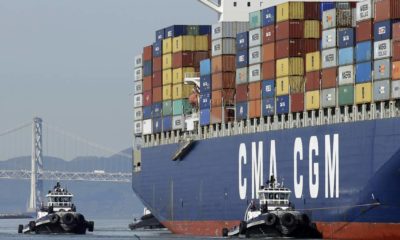- Palm oil: Malaysia Hits 19.4m Tonnes
Malaysia’s palm oil output may rise by 12 percent this year to 19.4 million tonnes from 17.4 million tonnes in 2016, an industry group forecast media report on Tuesday.
“Crude Palm Oil production we anticipate will improve, an increase of about 12 per cent, I think it’s a good increment, so as not to affect the price,” Ahmad Kushairi, the Director-General for Malaysian-Palm Oil Board (MPOB) said at a conference in Kuala Lumpur.
He added that palm oil exports for the year would rise 11.2 per cent to 17.85 million tonnes from 16.05 million tonnes in 2016.
Crude palm oil prices will be firm in 2017, he said.
Recall that in 2016 at the Climate conference in Morocco, Ghana and six other African countries agreed to protect their tropical forests and shift focus to palm oil production.
Other countries in the agreement are Liberia, Congo republic, Sierra Leone, Ivory coast, Central African Republic and the DRC.
The countries with a combined 250 million hectares of tropical forests for palm oil producers, signed a joint declaration at the Morocco conference on climate change on Wednesday.
The Morocco deal already had the support of some of world’s largest palm oil producers, buyers and traders.
Palm oil fuels a $50 billion global industry of food and food products and is projected to reach $88 billion by the year 2022.
Africa is said to be the world’s next growth spot for palm oil production, with Nigeria seeing earnings growth of local producers, as foreign exchange ban on oil palm products spur domestic capacity.
Official figures in Nigeria’s oil palm sector show an estimated supply gap of about 1.7 million metric tonnes yearly.
Although this is posing a precarious situation, but new initiatives had been taken to close the gap.
Already key players have begun to unveil their backward integration plans while some are undergoing expansion phases to make bride the demand-supply gap for the commodity in the country.
For instance, PZ Wilmar Limited, has staked about $80 million on its crude palm oil refinery in Nigeria.
According to the company, the plan, which is being implemented, would save the country some foreign exchange by eliminating yearly imports of $300 million spent on Palm oil importation, while bringing back the nation’s glory as a primary exporter of oil palm.
Nigeria’s President, Muhammadu Buhari, was among other world leaders at the conference which held from November 14 to 16, 2016.
President Buhari addressed the Climate conference and unveiled plans to issue green bonds to raise climate funds.
The country also planned to reduce emissions by 20 per cent by the year 2030, with the intention of raising the target to 45 per cent, with the support of the international community.

 Forex3 weeks ago
Forex3 weeks ago


 Naira2 weeks ago
Naira2 weeks ago
 Billionaire Watch2 weeks ago
Billionaire Watch2 weeks ago




 Naira3 weeks ago
Naira3 weeks ago




 Naira2 weeks ago
Naira2 weeks ago




 Naira1 week ago
Naira1 week ago




 Naira4 weeks ago
Naira4 weeks ago




 Naira4 weeks ago
Naira4 weeks ago






















